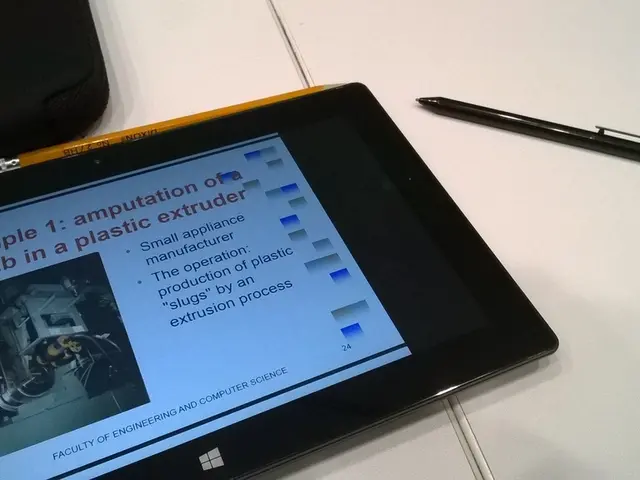Hiring practices in the UK significantly evolve as 77% of employers adopt skills-based evaluations, largely due to economic and AI-related pressures.
In the rapidly evolving world of work, the United Kingdom is witnessing a significant shift in hiring practices, with a growing emphasis on skills, soft skills, and the integration of Artificial Intelligence (AI) technologies. This transformation is reshaping the recruitment landscape, making it more inclusive, agile, and effective.
Key to this change is the increased use of skills tests. According to recent data, approximately 76% of UK companies now use skills assessments to measure cognitive ability and emotional intelligence, marking a departure from traditional methods such as resumes or degrees. This shift towards objective evaluation is driven by the fact that skills tests help predict actual job performance more reliably than conventional credentials.
Alongside technical skills, employers are placing greater emphasis on soft skills such as adaptability, communication, and emotional intelligence. This shift is due to the rapid evolution of roles and the need for agility and interpersonal capabilities in a hybrid remote work environment.
In a notable move, over 53% of employers have removed degree requirements, representing a 77% increase in just one year. This shift opens hiring to a broader, more diverse talent pool, focusing on potential and demonstrable skills rather than schooling alone. Companies like Kurt Geiger in the UK are leading the way by removing degree barriers to identify untapped talent with strong potential.
Artificial Intelligence is playing a pivotal role in this transformation. AI and automation are shaping hiring by creating new skill demands and transforming recruitment processes. Employers are leveraging AI-powered tools to screen candidates, optimise recruitment workflows, and focus on relevant skills matching. This is particularly important due to the UK’s digital skills gap, which is described as a “chasm,” underscoring a pressing need to upskill workers for the AI-driven economy.
The widespread adoption of remote and hybrid working models has expanded the talent pool geographically and reinforced the need for digital collaboration skills and communication competencies, raising the importance of both digital literacy and soft skills.
The benefits of this skills-centric approach are evident. 72% of employers agree that evaluating the whole person (not just technical ability) leads to better outcomes. Skills tests reduce hiring costs for 57% of UK employers and mis-hires for 66%. Among organizations using skills tests, 69% now assess soft skills. 89% of UK employers who used skills tests in the last 12 months are satisfied with their hires.
The adoption of AI in hiring is also on the rise. 61% of UK employers are now using AI in hiring, with 97% reporting improvement in their hiring process. 86% of job seekers and 77% of employers in the UK believe evaluating the whole person (skills, personality, and cultural alignment) leads to better results.
In conclusion, UK hiring in 2025 is increasingly skills-centric, combining skills testing, greater emphasis on soft skills, and AI-driven hiring technologies to meet evolving business demands and talent shortages. This approach supports diversity, agility, and effectiveness amid rapid technological change and a complex labour market. Employers prioritise building an inclusive culture (84%) and diverse teams (79%), despite global rollback of DEI initiatives. The future of hiring in the UK is undeniably skills-focused, heralding a new era of workforce development and talent acquisition.
- In the evolving business environment of the United Kingdom, the adoption of technology like AI is crucial, as it transforms traditional recruitment practices by leveraging AI-powered tools for skills matching and optimizing recruitment workflows.
- As education and self-development become increasingly important in the fast-paced world of work, employers are shifting their focus, placing emphasis on both technical skills and soft skills, such as adaptability, communication, and emotional intelligence, to foster an agile and inclusive workforce that can thrive in a hybrid remote work environment.




